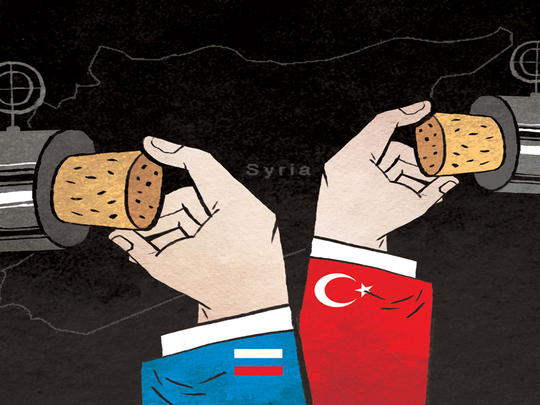
Following the ceasefire agreement between Syrian opposition factions and Moscow, parties to the Syrian conflict are getting ready to participate in peace talks at the Kazakh capital of Astana. Following the failure of two previous attempts to cease hostilities last year, there seems to be more optimism about the current ceasefire, which was announced on December 29.
The previous two Syria ceasefires were sponsored by the United States and Russia. The first took effect on February 27, 2016, and was aimed at bolstering the chances of what would eventually become the Geneva 3 peace process. It failed to produce the desired ends because of the continued shelling of opposition-held areas by regime forces and the refusal to allow humanitarian aid into stricken zones. The second ceasefire was announced on September 9, 2016. It failed to achieve its aims too because the patrons (Russia and the US) could not agree on the terms of security coordination between them, a fact exacerbated by Russia’s insistence that the peace process on Syria be tied to the Ukrainian conflict.
Parallel to the rapid deterioration of bilateral relations between Moscow and Washington, relations between Ankara and Moscow witnessed a rapid rapprochement. Washington’s open support for Kurdish separatist groups in Syria encouraged Ankara to move closer to Moscow. The first fruits of the reconciliation between the two countries were seen in the agreement to evacuate the besieged opposition fighters from the eastern quarters of Aleppo. The success of the Aleppo ceasefire gave Russia and Turkey the confidence they needed to progress towards a more comprehensive, Syria-wide peace.
Moscow convened a six-party summit which brought together the foreign and defence ministers of Turkey, Russia and Iran on December 20, 2016, and which culminated in the Moscow Declaration. The Declaration envisaged a wider ceasefire that covered the entire territory of Syria and all combatants to the conflict (with the exceptions of the Jabhat Al Nusra and Daesh, or the self-proclaimed Islamic State of Iraq and the Levant). The Declaration also called for the revitalisation of an internationally sponsored Syrian peace process, which had been defunct since January, 2014. Simultaneously, Turkey was hosting negotiations between representatives of Russia and of various armed Syrian opposition factions, the results of which were announced in the “Ankara Agreement”. The agreement was composed of three distinct texts, covering a ceasefire between the Syrian regime and the opposition; mechanisms for the monitoring of that ceasefire and for the provision of humanitarian aid to areas under siege by the regime; and the bases for peace negotiations to be held in Astana.
What makes this latest agreement different from all the previous attempts at a ceasefire in Syria is the lack of bickering between Moscow and Washington, which had bedevilled previous attempts to end the Syrian crisis. Turkey is speaking on behalf of the Syrian armed groups, which it supports, and which between them command roughly 60,000 fighters. Russia, meanwhile, acts as a sponsor of the regime of Syrian President Bashar Al Assad as well as Iran and its armed proxies active on the ground. In addition, Moscow seems keen to demonstrate that the military force it put on display can be translated into diplomatic victories and also seeks to avoid being further drawn into the Syrian quagmire in the midst of dire economic circumstances. Turkey’s motives in trying to end the conflict to its south are rooted mainly in its own security fears: The continuing conflict in Syria is threatening Turkey’s internal security and stability, while the country’s resources are already being drained by the demands of fighting a war on multiple fronts. Although Iran was not party to the latest ceasefire, yet, both Russia and Turkey were keen to involve Tehran in later stages of the agreement, in acknowledgement of its huge influence on the Syrian regime. These measures did not appease Iran however, which remains weary of the closer ties between Russia and Turkey. Iran’s Revolutionary Guard in particular is suspicious of as-yet undeclared understandings between Turkey and Russia over Syria. Just as the Iranian Revolutionary Guards were able to use their Lebanese and Iraqi proxies to attempt to thwart the earlier deal struck over Aleppo, by preventing the peaceful evacuation of the armed Syrian opposition from the city, the same group today seems intent on using Hezbollah to continue to shell opposition-held areas in the outskirts of Damascus, in contravention of the Ankara Agreement.
The latest attempts by Moscow and Ankara to bring peace to Syria seem to be the most genuine so far at ending the bloodshed in that country. Yet, the ultimate success of these efforts will depend on Moscow’s ability to rein in Iran and force it to respect the ceasefire. It will also depend on the willingness of the other regional and global powers to do their part in ending this conflict. This includes, foremost, the incoming US administration and the extent of its resolve to support Russian-Turkish efforts to achieve a political resolution to the Syrian crisis.
Dr Marwan Kabalan is a Syrian academic and writer.







